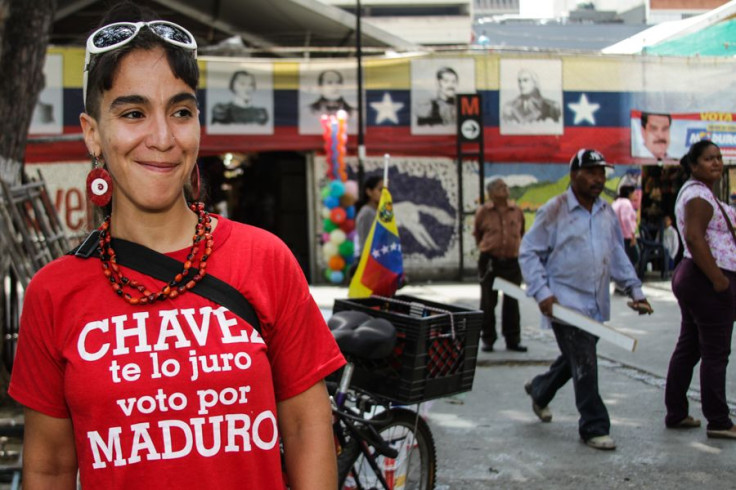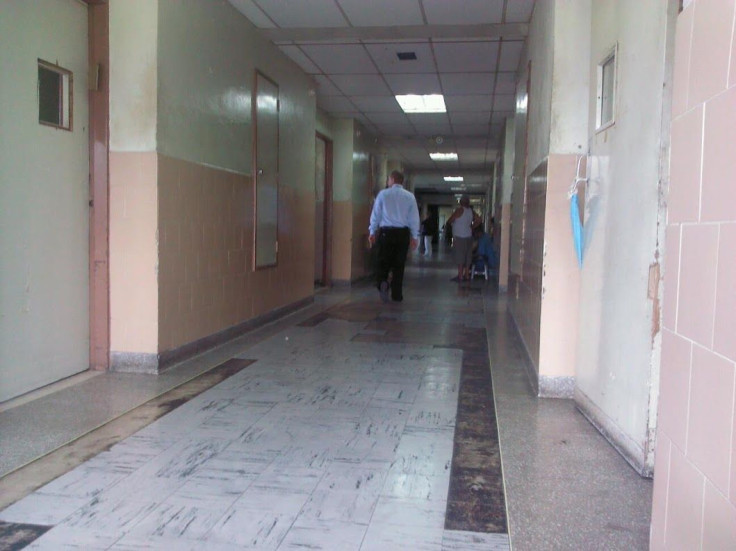Venezuela's Health System Verges On Collapse As Hospitals Run Short On Supplies

As Venezuela reels in political and economic crisis, hospitals continue to send sick patients home from a medical system on the brink of collapse.
At Central Hospital in Maracay, doctors last month discharged some 300 cancer patients when medical supply shortages forced triage, leaving most non-emergency patients — the long-term sick — without any treatment. Among them, 37-year-old Evelina Gonzalez might be considered one of the luckier ones whose desperate plight guarantees her a chance to continue waiting for cancer surgery initially scheduled for July, the Associated Press reports.
“I feel like I’ve been abandoned,” Gonzalez told a psychologist at the hospital, her right eye swollen with glaucoma diagnosed two years ago but left untreated. Following chemotherapy for breast cancer, she began a daunting journey through the local health care system, transferring from hospital to hospital. At her latest destination, she’s on a waiting list with 31 breast cancer patients awaiting surgery.

Doctors in Venezuela say no government healthcare statistics have been collected since 2010, although they know for sure they’re lacking medical supplies across the gamut: needles, syringes, paraffin used in biopsies for cancer diagnostics, X-ray film, imaging paper, and so forth.
Also last month, Venezuela suspended organ donations and transplants, as 70 percent of the country’s radiotherapy machines clunked out of repair. In a country of nearly 30 million people, the medical shortages continue to harm many cancer patients. In an estimate from Douglas Natera, president of the Venezuelan Medical Federation, radiotherapy machine shortages may cut cancer treatment for 5,000 of the current 19,000 cancer patients requiring care.
“Two months ago we asked the government to declare an emergency,” Natera says. “We got no response.” Likewise, Health Minister Isabel Iturria failed to respond to queries from foreign journalists.
Ironically, the collapse of Venezuela’s medical system follows the death from cancer of the late authoritarian leader Hugo Chavez, a socialist hero to many in Latin America. Although touting one of the region’s most advanced medical systems, Chavez left the country to seek late-stage cancer treatment in Cuba.
Although Chavez’ allegedly utopian socialist system had been built largely on a corruption and graft, a giant Ponzi scheme, the collapse appeared sudden following the longtime leader’s death in March. Once the best funded of healthcare systems in the region, the government had cut medical money to 4.1 percent of gross domestic product by 2002, with total per capita expenditures of $386 in 2001.
Last week, Venezuela’s deputy health minister, Nimeny Gutierrez, denied assertions the country’s medical system had reached a crisis state. Medical supplies imported from Cuba, Uruguay, Columbia, and Portugal, along with other purchases, “will let us be moderately relaxed until the end of the year,” he said.
Meanwhile, Venezuela’s opposition leader — Henrique Carpiles, defeated in the succession battle by President Nicolas Maduro — has appealed to Pope Francis, a native or Argentina, for help.



























